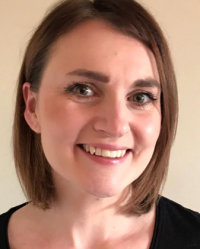How to boost your self-esteem with critical thinking
Have you ever had unhelpful thoughts about yourself or the world around you that seem to hold you back? These thoughts are called limiting beliefs and they can be based on past experiences or things we've been told by others.

Sometimes we don't even realise we have them! But, these limiting beliefs can prevent us from reaching our full potential and becoming the best version of ourselves. They can even become self-fulfilling prophecies, meaning they can become true simply because we believe them to be true.
Did you know that critical thinking is important for evaluating information objectively and avoiding fake news and conspiracy theories? When we don't engage in critical thinking, we might believe things without question, or fail to look for the evidence behind them. This is especially true if the information fits with our pre-existing beliefs or biases. Biases are shortcuts our brains use to process information quickly, but they can also distort our perceptions and judgments.
Developing critical thinking skills can help us avoid misinformation and make more informed decisions.
So, what exactly is critical thinking?
Critical thinking involves carefully reviewing information, ideas, and arguments logically. To address our limiting beliefs we first need to identify our biases, question our assumptions, and assess the credibility of our sources. It's easy to get caught up in the unhelpful self-talk that can hold us back, but by examining the underlying assumptions and biases that shape our thinking, we can break free from those limiting beliefs. For example, if we believe we can't achieve our goals, we might only focus on our past failures and ignore our past achievements or positive feedback from others. But if we can learn to question our limiting beliefs and think critically, we might realise that we're actually capable of more than we thought!
To try this out, grab a pen and paper, and write down one of your limiting beliefs. Observe your thoughts and pay attention to your inner dialogue. Sometimes, we hold onto beliefs for so long that we don't even realise we have them, or we assume they're true without really examining the evidence.
How do I challenge limiting beliefs?
To challenge your own limiting beliefs, ask yourself the following questions:
- What is my inner voice saying to me right now?
- What belief underpins these thoughts?
- Where did this belief come from?
- How long have I held this belief?
- How does ‘holding on’ to this belief affect my life?
- How does this belief affect my behaviour and decisions?
- How is this belief still relevant?
- What evidence do I have to support this belief?
- Does this evidence come from a reputable source?
- What evidence challenges this belief?
- What alternative perspectives could be considered?
- If a loved one was in my situation, what would I say to them?
- If I held a different (more helpful) belief, how might I act right now?
- What would be the helpful thing to do?
- How can I be kinder to myself right now?
Critical thinking can also enable us to do more than just evaluate information objectively. It can also help us be more empathetic and less judgmental towards others, especially in the age of social media where opinions can be polarising. By considering alternative perspectives, we can appreciate the complexities of human experiences and find common ground, even when we disagree. This way, we can engage in positive and constructive discussions online instead of getting caught up in unpleasant and unproductive arguments.
It is worth noting that critical thinking, much like any other tool or technique, can be overused. While it can be highly beneficial for questioning our beliefs, it should be applied with flexibility. For instance, if we tend to overthink, critical thinking may lead us into a downward spiral of excessive self-questioning, which may not be helpful to us.
If you find yourself frequently caught up in a cycle of doubt and rumination, it may be time to take a break from critical thinking and focus on what would be the most beneficial thing to do in the present moment- regardless of any limiting beliefs you may hold. In fact, it is possible to have limiting beliefs and still make a choice on how to respond to them, even though your mind may be telling you otherwise. For example, many successful entrepreneurs experience imposter syndrome beliefs yet, despite them, still manage to thrive in their careers.
In summary, flexible critical thinking is a valuable tool for recognising and challenging our biases and assumptions. By honing our critical thinking skills, we can make better-informed decisions and behave in a way that is more conducive to our own self-esteem. Over time, we may even develop more accurate and empowering beliefs as a response.
Seeking assistance from experienced coaches, who specialise in helping individuals manage limiting beliefs, can help you improve your critical thinking skills and become more adept at recognising and challenging your own biases and assumptions. You will be able to learn valuable strategies to empower you and techniques to help you take helpful action, unencumbered by the beliefs that once held you back!

Find a coach dealing with Self-esteem
All coaches are verified professionals



